How Safe Is Costa Rica?
Costa Rica has become one of the most popular expat and digital nomad destinations in Latin America, known for its natural beauty, relaxed lifestyle,...

6 min read
Ever thought about where to move if there is a nuclear holocaust? It's not your typical Saturday night pub chat, but with the increasing tensions in our world today, it's worth pondering. I mean, we've all seen the dystopian films and read Orwellian tales of an atomic aftermath. Yet this could be more than just fodder for science fiction.
In this exploration, we're going to traverse into territories less travelled. We'll look at how current global nuclear situations might shape future safe havens and analyze the historical significance of these deadly weapons that cast long shadows on the human psyche.
This is your guide about where to move if there is a nuclear holocaust. We will visit repurposed bunkers turned nightclubs as symbols of hope amidst despair, discuss why South America or isolated Pacific Islands may be appealing hideouts during dire circumstances, and touch upon the decline in global violence and its impact on our collective anxiety around a potential apocalypse.
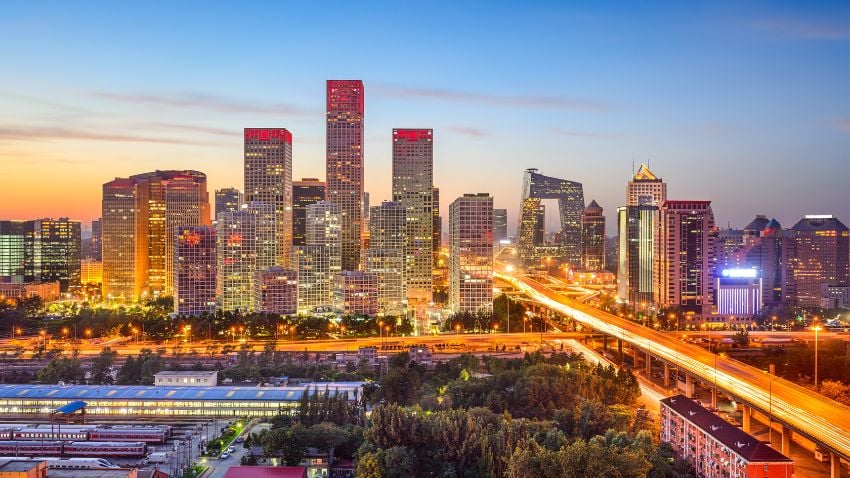
Beijing, China CBD Skyline
The world today faces a more significant risk of nuclear destruction than during the 70s and 80s, as asserted by ex-Pentagon chief William Perry. This may be unexpected, given that international treaties have prohibited nuclear arms for over two decades.
However, not all countries have signed up to these accords. The Federation of American Scientists provides an insight into the status of world nuclear forces, shedding light on how some nations continue to hold onto their atomic arsenals.
The so-called "nuclear club" includes five permanent members: USA, Russia, China, UK and France - all known for having ratified important international treaties such as the Treaty on Non-Proliferation of Nuclear Weapons (NPT). Despite this commitment towards disarmament over two decades ago, geopolitical tensions occasionally stoke fears about potential misuse.
Aside from these primary players in global armament scenarios, several other nations either possess or aspire to acquire similar capabilities — often leading to regional conflicts and global concerns about proliferation.
We've seen historical instances where states' ambition for developing or acquiring nuclear weapons led them down dangerous paths — sometimes even at great cost to their own people. It's crucial, then, that we keep track of changes in alliances and power dynamics, which can significantly alter the threat perception globally.
It is essential that we gain knowledge from past errors, even though our shared recollection may not stretch back to the 70s and 80s. The Cold War era witnessed an unprecedented arms race between superpowers leading up to potentially catastrophic scenarios.
Despite living in a post-Cold War world now, there are several lessons we can take away — one of which is certainly about avoiding similar power dynamics that once brought us on the brink of a nuclear winter.
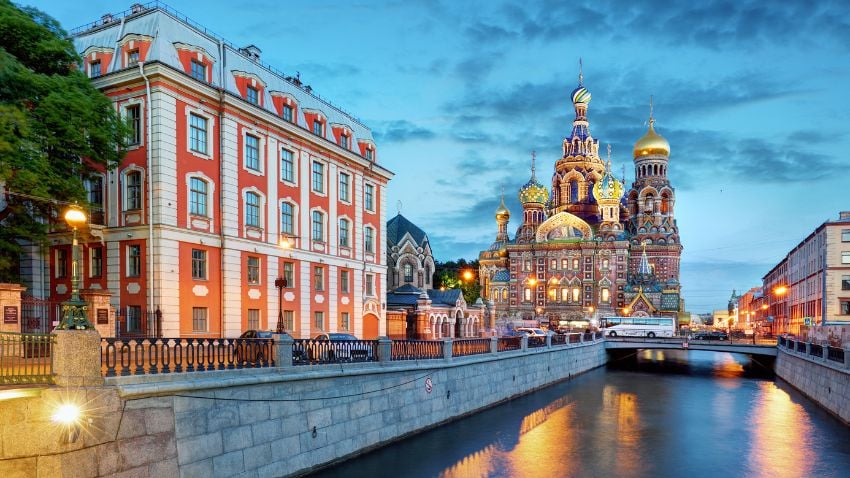
St. Petersburg, Russia
The sheer power and destructive capability of nuclear weapons have left an indelible mark on the human psyche. The unique psychological effect these weapons wield is due in part to the bombings of Hiroshima and Nagasaki, which still resonate with horror for many today.
This impact extends beyond mere fear into emotional geopolitics, shaping global political decisions. For instance, during the Cuban Missile Crisis, leaders were acutely aware that any misstep could lead to atomic annihilation. This terror influenced their choices drastically.
In a peculiar twist, some nuclear bunkers now serve less threatening roles. Take Prague's thriving nightclub scene; venues like Bunkr Parukářka, once built as fallout shelters during Cold War tensions, now host ravers rather than survivors.
The shift from warheads to DJ sets illustrates how symbols of destruction can be reimagined in surprising ways when circumstances change.
A chilling example was seen when the British Government used this stigma surrounding nuclear weaponry within its infamous September Dossier - falsely alleging Iraq's possession of such arms - to justify an invasion.
This manipulation demonstrates how deeply rooted our collective anxiety around nukes has become.
|
Nuclear Fear Statistic: |
Impact on Policy Decisions: |
|
The bombings of Hiroshima and Nagasaki led to global terror around nuclear weapons. |
The British Government used the stigma of nuclear weaponry in its September Dossier to justify the invasion of Iraq. |
Yet, despite their horrific legacy, these powerful devices have also been drivers for peace. The knowledge that a single button press could lead to mutual destruction has kept international tensions from boiling over into full-scale war on several occasions. It's important to remember that while these threats can seem overwhelming at times, it's crucial not to lose sight of the bigger picture.
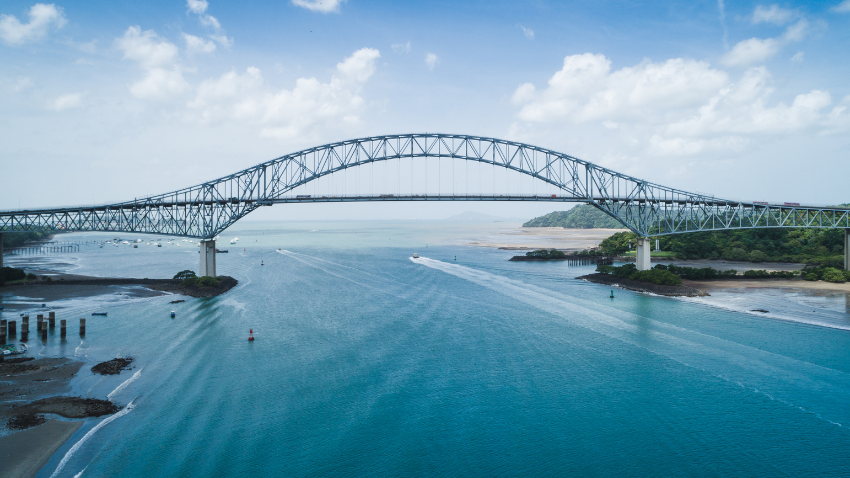
Las Americas Bridge, Panama
Let's explore some potential safe havens during a nuclear war. Despite the dire circumstances, there is hope; certain places on our planet could provide a greater level of safety during a nuclear war. It turns out that certain places on our beautiful planet could offer more safety than others in such dire circumstances.
The allure of Latin America extends beyond its vibrant culture and rich history. Countries such as Uruguay, Brazil, Argentina, Paraguay, Panama, Mexico and Colombia could be a refuge from radioactivity caused by the global nuclear situation due to their remoteness from significant players.
Brazil, with its vast expanse away from probable target sites, stands out particularly among these countries. In my strategies for wealth protection abroad, I recommend diversification across different continents, which includes investing or setting up bases in South American nations too.
Moving onto island nations, we have numerous remote Pacific islands that could be relatively safer during an atomic annihilation because they're far removed from geopolitical hotspots where intercontinental ballistic missiles are likely to fly about.
Easter Island, home to those famous stone heads, comes into play here; this isolated island lies over 2000 miles west of the Chilean mainland, offering respite if you seek shelter indoors after North America gets caught under rain clouds caused by blast waves dispersing harmful particles high into the atmosphere causing health security concerns.
Taking weather patterns into account, Kiribati and the Marshall Islands, situated in an area of typically low wind activity according to numerical weather prediction, could be another shelter indoors option.
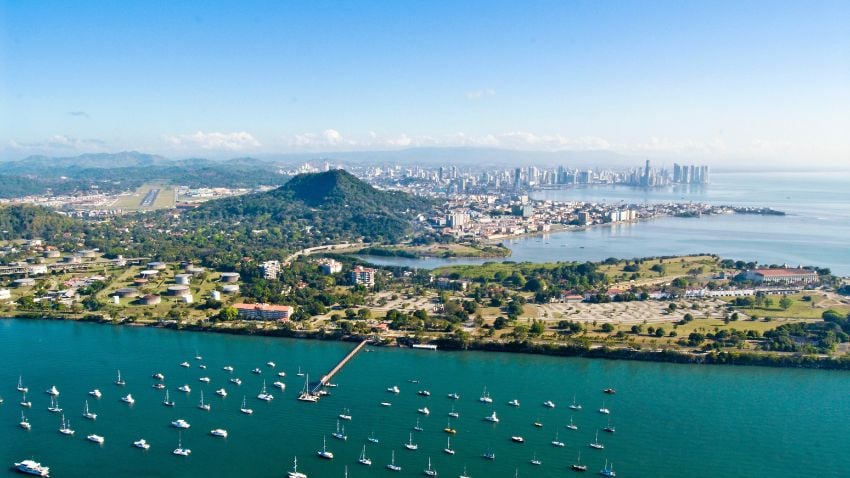
Panama is one of the safest nations in the region for foreigners
The possibility of a nuclear holocaust has been the stuff of nightmares since the first atomic bomb was dropped. But what if we told you that there are places to move in case of such dire circumstances? With today's escalating geopolitical tensions, this topic isn't just for dystopian novels anymore.
So, let's start with understanding the key players who could instigate a nuclear war scenario. The situation in Ukraine is particularly alarming due to NATO's involvement. Easily baited leaders can make things go south quickly, as history has shown us before.
Russia, under Vladimir Putin, seems less afraid than ever about brandishing its nuclear weapons. Tensions between South Korea, USA and North Korea also raise concerns about possible World War III scenarios involving intercontinental ballistic missiles.
This high-stakes poker game recalls memories from the height of the Cold War era when nations braced themselves against atomic annihilation, fearing each other’s massive arsenals packed with powerful nuclear warheads.
Then, there's the never-ending conflict between Israel and Gaza, causing uncertainty in the region. The Middle East has been a source of tension for an extended period, but what if it were to become the origin point for atomic missiles? We don't want to find out.
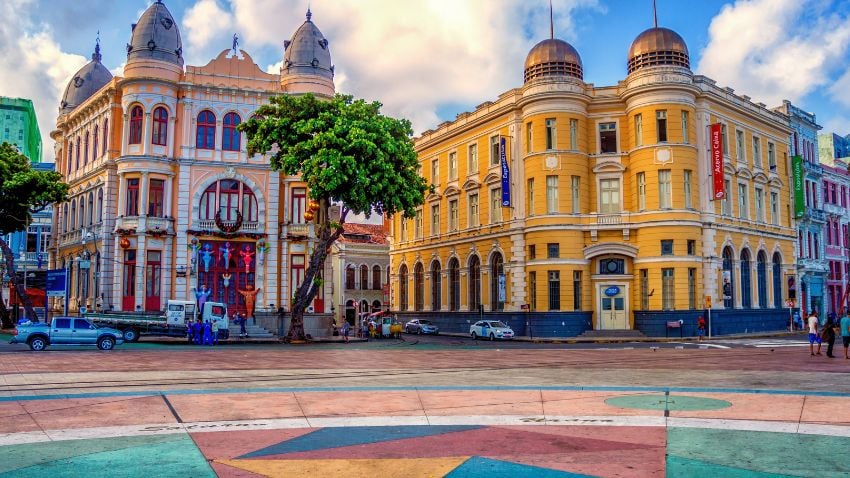
Historical Square in Recife, Pernambuco, Brazil
The present-day reality appears to be a world away from the Cold War period. There's been an overall decline in global violence, which brings us good news - it has had a significant impact on nuclear anxiety.
In contrast with today, during the height of the Cold War between Vladimir Putin's Russia and North America, fear of atomic annihilation was palpable. Major cities lived under constant threat as intercontinental ballistic missiles loaded with nuclear warheads were always ready for launch.
This grim reality gave birth to fallout shelters designed to protect people nearby from blast waves and radiation exposure following a nuclear attack. Such defensive measures reflected how seriously nations took threats like those posed by all-out nuclear warfare or even just single-nuclear strikes.
Fortunately, since then, we've seen declines in violence globally; our worst-case scenarios seem less likely than they did decades ago. Countries have taken steps towards disarmament — denuclearisation is not merely theoretical but has become real action.
We are living through times that feel less threatened by looming danger zones such as radioactive fallout or shockwaves caused by explosions – although tensions still exist.
The reduction in worldwide aggression helps alleviate fears over phenomena like 'nuclear winter'. This term refers to the hypothesized climate change following a large-scale nuclear war. However, such an eventuality now seems increasingly remote.
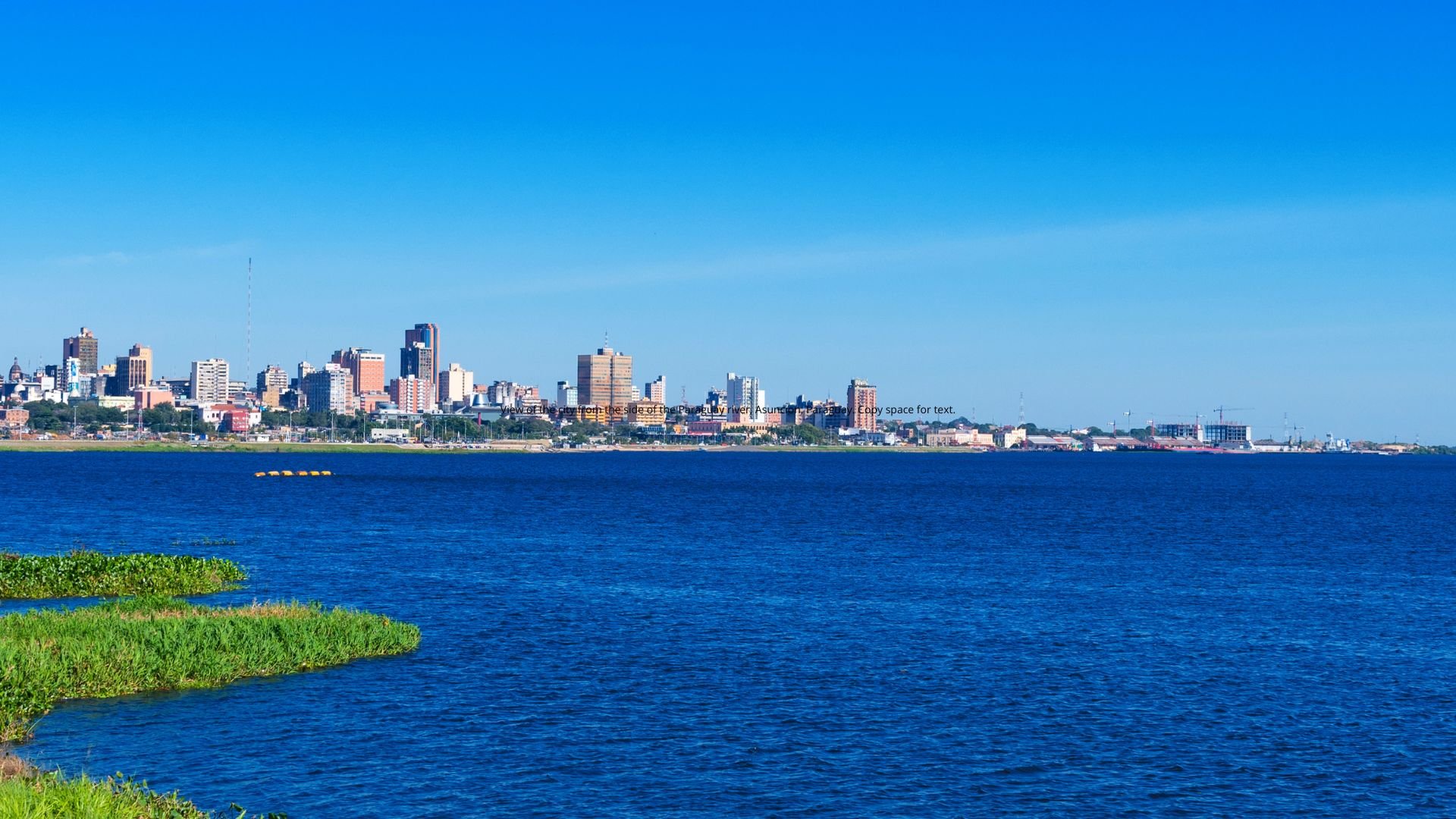
View of the city from the side of the Paraguay River in Asuncion
So, you've taken a journey into the unexpected - delving deep into the realm of nuclear holocaust survival. The understanding of our current nuclear landscape has been enhanced, and now, such discussions are not as alien as they seem.
The emotional impact these weapons have had on global politics is now clearer than ever. Who knew that former bunkers could morph into nightclubs? An ironic symbol of hope in an otherwise bleak topic.
We've ventured to potential safe havens, pondering over where to move if there is a nuclear holocaust. Latin America's appeal has shone through while the Pacific Islands emerged as unexpected sanctuaries during dire circumstances.
You’ve absorbed insights about rising world tensions and their implications for peace, yet also learnt how decreasing global violence impacts our collective anxiety around this apocalyptic possibility.
All things considered, let’s carry this newfound knowledge forward with us - even though we all hope it remains firmly in theory rather than practice!
If you want the best intel from the expat world, including profitable offshore opportunities, little-known tax-saving strategies, and hard-won insights on immigration, passports, and Plan-B residencies, all delivered to your inbox every single week, then join our daily correspondence, EMS Pulse®. Currently enjoyed by over 84,000 expats and expat-hopefuls worldwide. Fill in the form below to join our newsletter free:

Written by Mikkel Thorup
Mikkel Thorup is the world’s most sought-after expat consultant. He focuses on helping high-net-worth private clients to legally mitigate tax liabilities, obtain a second residency and citizenship, and assemble a portfolio of foreign investments including international real estate, timber plantations, agricultural land and other hard-money tangible assets. Mikkel is the Founder and CEO at Expat Money®, a private consulting firm started in 2017. He hosts the popular weekly podcast, the Expat Money Show, and wrote the definitive #1-Best Selling book Expat Secrets - How To Pay Zero Taxes, Live Overseas And Make Giant Piles Of Money, and his second book: Expats Guide On Moving To Mexico.
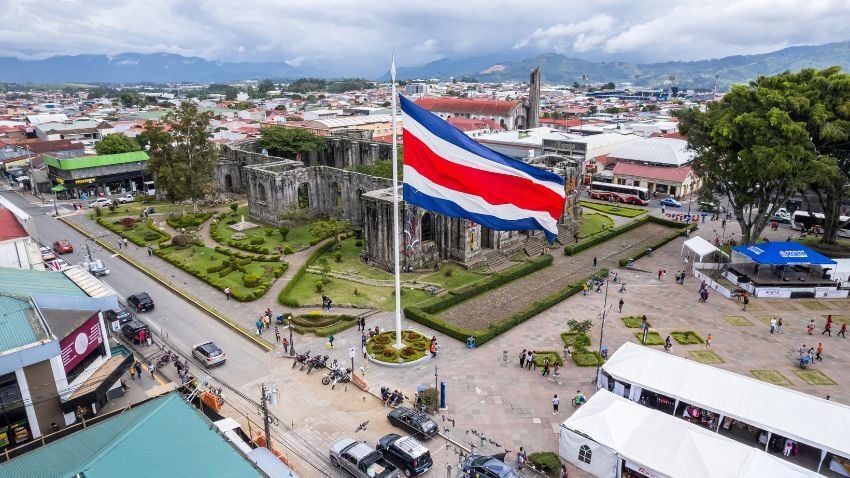
Costa Rica has become one of the most popular expat and digital nomad destinations in Latin America, known for its natural beauty, relaxed lifestyle,...

Mexico remains one of Latin America’s most compelling destinations, especially for North Americans. More than a million expats call it home, and tens...

South Korea is far more than K-pop and K-dramas. It is a country known for outstanding food, from bustling street markets to high-end dining, as well...